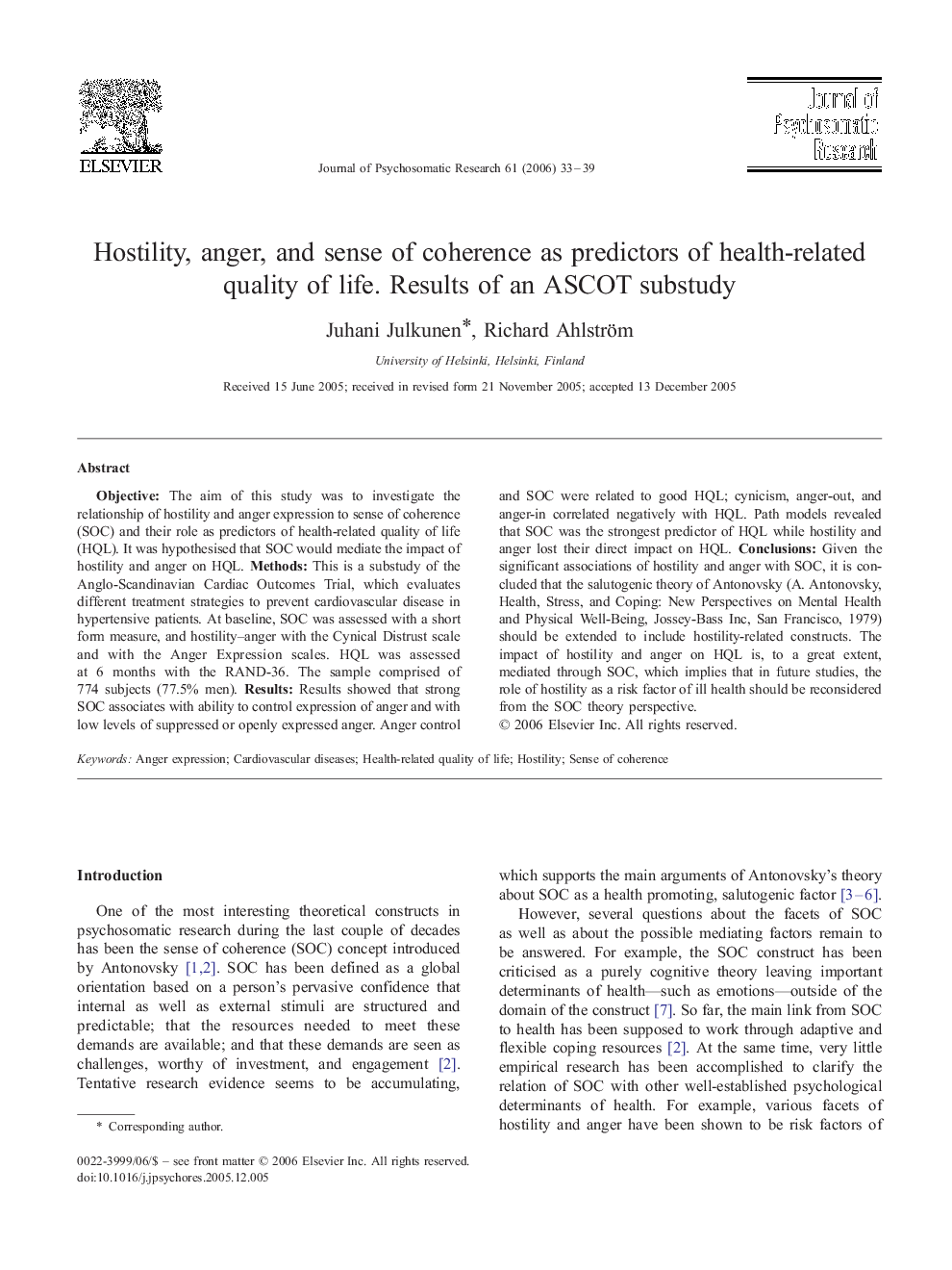| Article ID | Journal | Published Year | Pages | File Type |
|---|---|---|---|---|
| 950982 | Journal of Psychosomatic Research | 2006 | 7 Pages |
ObjectiveThe aim of this study was to investigate the relationship of hostility and anger expression to sense of coherence (SOC) and their role as predictors of health-related quality of life (HQL). It was hypothesised that SOC would mediate the impact of hostility and anger on HQL.MethodsThis is a substudy of the Anglo-Scandinavian Cardiac Outcomes Trial, which evaluates different treatment strategies to prevent cardiovascular disease in hypertensive patients. At baseline, SOC was assessed with a short form measure, and hostility–anger with the Cynical Distrust scale and with the Anger Expression scales. HQL was assessed at 6 months with the RAND-36. The sample comprised of 774 subjects (77.5% men).ResultsResults showed that strong SOC associates with ability to control expression of anger and with low levels of suppressed or openly expressed anger. Anger control and SOC were related to good HQL; cynicism, anger-out, and anger-in correlated negatively with HQL. Path models revealed that SOC was the strongest predictor of HQL while hostility and anger lost their direct impact on HQL.ConclusionsGiven the significant associations of hostility and anger with SOC, it is concluded that the salutogenic theory of Antonovsky (A. Antonovsky, Health, Stress, and Coping: New Perspectives on Mental Health and Physical Well-Being, Jossey-Bass Inc, San Francisco, 1979) should be extended to include hostility-related constructs. The impact of hostility and anger on HQL is, to a great extent, mediated through SOC, which implies that in future studies, the role of hostility as a risk factor of ill health should be reconsidered from the SOC theory perspective.
